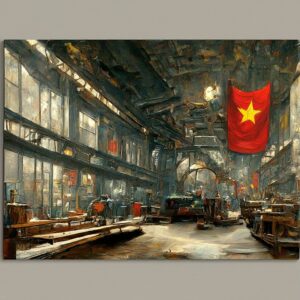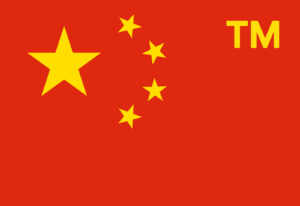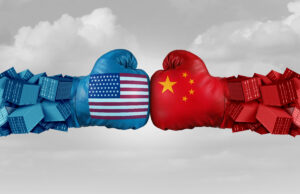Plus ça change, plus c’est la même chose, meaning “the more that changes, the more it’s the same thing,” is a phrase coined by Jean-Baptiste Alphonse Karr, a French novelist and editor, often shortened to plus ça change. When it comes to doing business in China, it sure seems to be that way, with businesses tripping over rocks that have been there for decades. Here are three perils of which we’ve been warning for a long time, that continue to bedevil those doing business in China.
Contracting with the Wrong Manufacturer
We see this all the time. A client will ask us to draft a contract with a Hong Kong company, establishing the terms under which certain manufacturing activities will take place. The thing is, for quite some time now, very little has been manufactured in Hong Kong. Even the tailors in Tsim Sha Tsui will send your measurements across the border to Mainland for the sewing work; it is not uncommon to see the handovers of finished suits and other garments at border crossings.
This means the Hong Kong company is likely just a middleman. In some cases, it may be nothing more than a shell company used by a Chinese manufacturer to conduct business, especially banking, in Hong Kong. Or it could be that the Hong Kong company owns a China subsidiary that carries out manufacturing activities. Either way, the Hong Kong company probably cannot ensure compliance with the contract terms, nor does it likely have assets to satisfy a judgment if things go poorly.
It is also possible to enter into a contract with the wrong Chinese company. Again, you could be dealing with a middleman that in turn deals with the manufacturer, or with a related company that does not have legal control over the manufacturing facility.
Not Having a Contract
While having a contract provides no guarantee of smooth operations or favorable dispute resolution, a well-drafted agreement can mitigate many risks. What is almost guaranteed, though, is that if a dispute arises and you do not have a contract, you will have no chance of legal recourse in China.
In addition, not having a contract makes it more likely that problems will arise in the first place. Imagine that your manufacturer produces a batch of subpar goods that it wishes to pawn off on one of its clients. And say that the manufacturer has signed contracts with some clients but not with you. It figures it has a 50% chance of getting away with stiffing those clients with whom it signed contracts, but, say, 100% of getting away with it in your case. It’s easy to predict who they will target.
Trademark Squatters
Think of your trademark as a bike. Not locking it when visiting a high-crime area does not mean that it will be stolen for sure. But if it did get stolen, you would have no one to blame but yourself.
Trademark squatters are the bike thieves, and trademark registration is the lock. Squatters monitor foreign trademark filings and business activity to identify potentially valuable marks. They register these marks to extort money from legitimate brand owners. We have long warned about this issue, so China Law Blog readers should be well-prepared against trademark squatting.
From manufacturing partnerships, to contracts, to IP protection, companies must stay vigilant against China’s enduring pitfalls. The realities of doing business in China may seem stubbornly persistent, but with the right awareness, preparation, and advisors, companies can adapt and thrive. Do your homework, vet your partners, protect your IP, and consult qualified legal counsel – don’t become another cautionary tale. China’s growth story is far from over. Position your company for success by learning from the missteps of others. Take control of your China strategy now before pitfalls take control of you.
Are there any other China business realities that make you say plus ça change …?

























